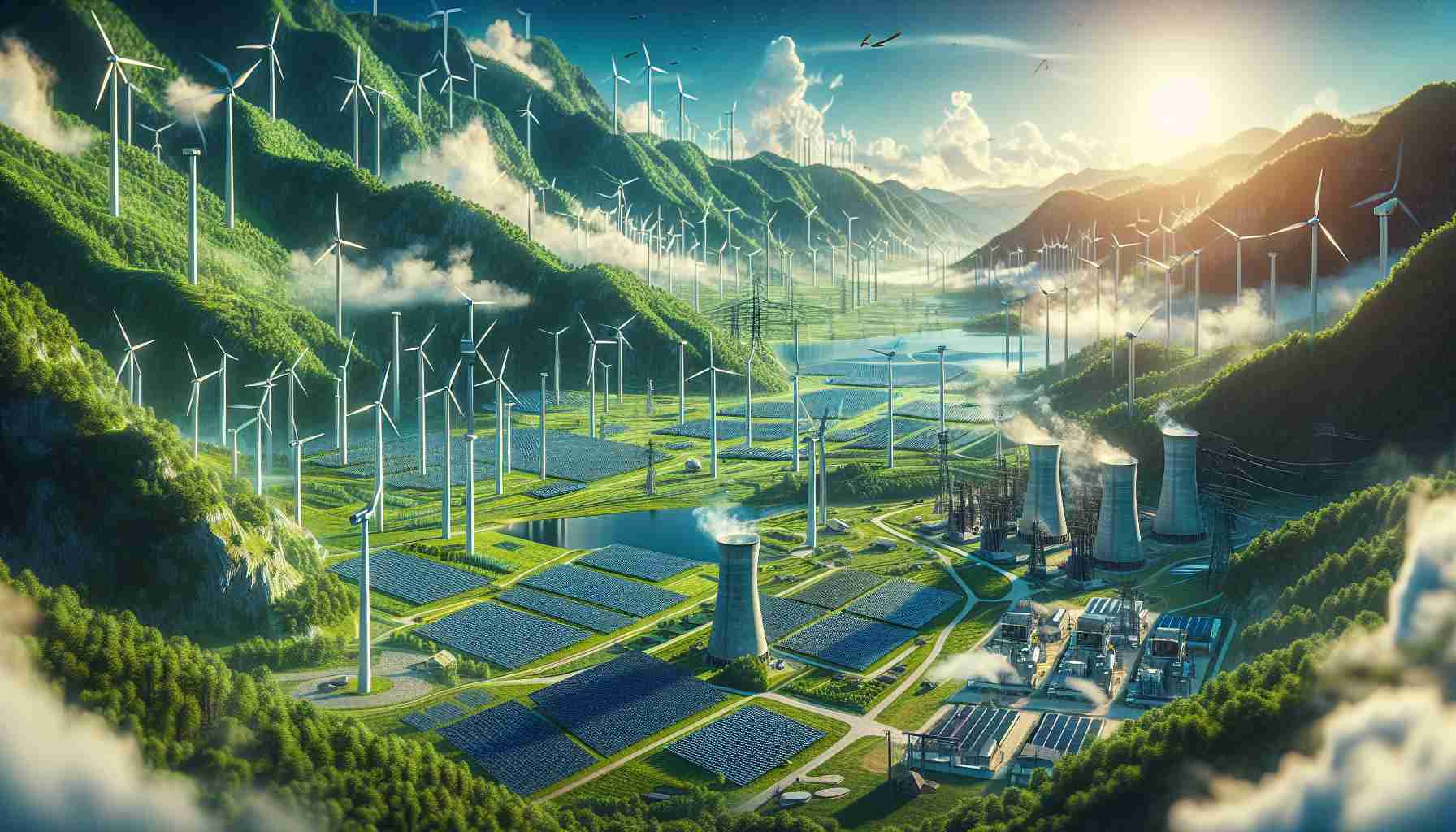
Albania’s Renewable Energy Push
Albania is on the brink of a significant transformation in its energy landscape, harnessing its natural resources more effectively. Currently, hydropower is the backbone of the nation’s electrical supply, accounting for an impressive 98% of its electricity generation. However, the government is setting its sights on diversifying its energy portfolio to include other sustainable sources like wind and solar.
To facilitate this shift, a new renewable energy operator (OER) has been established with an initial investment of nearly €510,000 (approximately $530,600). This government-backed initiative aims to purchase clean energy generated from various sources through innovative contracts, incentivizing investments in renewable technologies.
Albania currently produces 28% of its energy from electricity, with ambitions to significantly boost this figure to 54.4% by 2030. Despite the country’s reliance on hydropower, it has yet to harness wind energy, with no wind turbines currently in operation. This gap presents a considerable opportunity for growth in the sector.
Furthermore, exciting collaborations are on the horizon, including a partnership with the Abu Dhabi clean energy company Masdar. This agreement focuses on large-scale solar and wind projects that could benefit not only Albania but also neighboring regions. One notable project, the GreNNat Solar Park Ballsh, recently received approval for partial production, signaling a promising start to Albania’s clean energy journey.
Albania’s Renewable Energy Revolution: Unlocking a Sustainable Future
Albania is gearing up for a transformative shift in its energy sector, aiming to diversify its energy sources and enhance sustainability. While the country currently relies heavily on hydropower—accounting for an impressive 98% of its electricity generation—the government is proactively seeking to incorporate wind, solar, and other renewable energy sources into its energy mix.
Key Features of Albania’s Renewable Energy Strategy
1. Establishment of a New Renewable Energy Operator (OER):
– The government has launched OER with an initial investment of around €510,000 ($530,600). This operator will play a crucial role in facilitating the purchase of clean energy from diverse sources through innovative contracts that encourage private investment in renewable technologies.
2. Target for Renewable Energy Expansion:
– Currently, electricity makes up 28% of Albania’s total energy usage, with an ambitious plan to increase this to 54.4% by 2030. This substantial target underscores the nation’s commitment to renewable energy growth.
3. Partnerships for Sustainable Growth:
– Albania is entering a partnership with Masdar, a significant player in clean energy from Abu Dhabi. This collaboration aims to develop large-scale solar and wind projects, boosting energy production capacity and establishing Albania as a renewable energy hub in the region.
4. Emerging Projects:
– One of the notable initiatives is the GreNNat Solar Park Ballsh, which recently received approval for partial production. This project exemplifies the practical steps Albania is taking toward a sustainable energy future.
Pros and Cons of Albania’s Renewable Energy Initiatives
Pros:
– Diverse Energy Portfolio: Reducing reliance on hydropower can enhance energy security and stability.
– Economic Opportunities: Attracting foreign investments and creating jobs in the renewable sector.
– Environmental Benefits: A shift to renewable energy sources will contribute to reduced carbon emissions and environmental preservation.
Cons:
– High Initial Costs: Developing renewable energy infrastructures, such as wind farms and solar parks, involves substantial capital investment.
– Technological Challenges: Transitioning to solar and wind energy requires technological advancements and skilled labor, which may not be readily available.
– Regulatory Hurdles: A need for robust policies and regulations to support renewable energy projects effectively.
Limitations and Considerations
While Albania’s focus on renewable energy presents immense opportunities, challenges remain. The country lacks existing wind infrastructure, with no operational turbines, which highlights the significant untapped potential in this sector. Additionally, Albania must navigate the complexity of establishing a regulatory framework that supports renewable energy growth while ensuring energy affordability for consumers.
Market Trends and Future Insights
The drive towards renewable energy in Albania aligns with global trends emphasizing sustainability and environmental responsibility. As countries worldwide ramp up their renewable energy initiatives, Albania’s efforts can serve as a model for other nations aiming for a similar transition.
Innovations in Renewable Energy
Albania’s foray into renewable energy not only demonstrates its commitment to sustainability but also reflects an innovative approach to energy management. The creation of the OER and partnerships with notable companies like Masdar emphasize collaborative efforts to achieve a greener future.
Conclusion: A Promising Path Forward
With its ambitious plans and strategic partnerships, Albania is poised to become a leader in renewable energy within the Balkans. By embracing a diversified energy strategy, the country can pave the way for a sustainable energy future, while addressing both environmental concerns and economic opportunities.
For further information, visit Albania’s official government portal.



